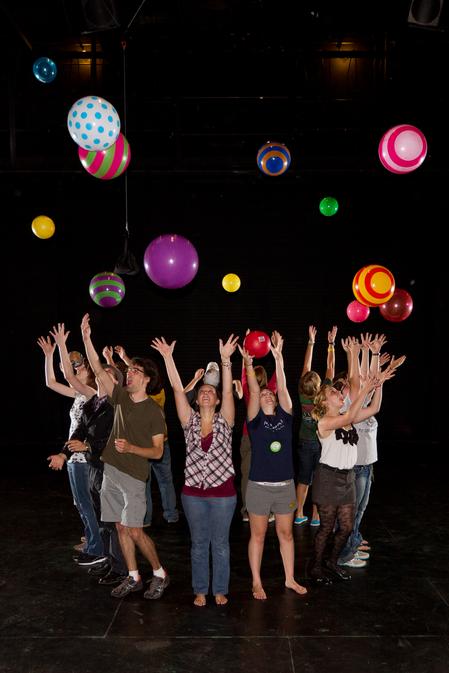Patricia Helsel
Process is crucial in the evaluation of students. Journals are the primary means by which I communicate with students outside of class. I assign journal topics to guide the students in self-evaluation and analysis of acting techniques. Using CANVAS, Michigan Tech’s electronic course application, I am able to respond immediately to students which allows them to process my comments and suggestions before the next class. During scene work, this is quite valuable as they rehearse outside of class with a partner.
Enrollment in Acting I class has been extremely diverse, including students for whom English is a second language. I have adapted my teaching style to point up the universal nature of acting as it depicts the human experience. Many beginning acting exercises are intended to demonstrate the irrelevance of words, as symbols, focusing instead on context of human interaction (given circumstances), urge to communicate, and the ability to observe emotional reactions from a partner. The more diverse the class, the more opportunities exist for students to examine unique differences in perception. Ultimately, students choose a partner with whom to perform in a final scene. Whatever the combination, each student must adapt to the communication style of the other. For beginning actors I assign scenes with characters within their relative age range and life experience. Neil Simon is a popular choice for such scenes and has proven to be a useful tool for teaching American culture to those students who have only been in the U.S. a short time. The inclusive nature of the class serves the department and university well, providing a positive experience for non-majors, while setting a firm foundation for performance majors as they move on to more advanced techniques and classes.
A “recital” is offered as a final project for the class wherein students present their final scenes before an invited audience. The added dynamic of the audience provides the students with a more complete understanding of performance. They are propelled to a higher level of concentration while focusing the extraordinary energy provided by a live audience. The final “Evening of Scenes” combines performances of the beginning students with those of dvanced students. The final project serves additional purposes in celebrating what each has learned, encouraging beginning students to continue their training as actors, and attracting new students who enjoyed their friends’ performance.




